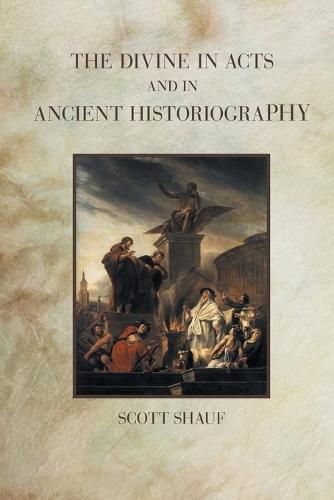Readings Newsletter
Become a Readings Member to make your shopping experience even easier.
Sign in or sign up for free!
You’re not far away from qualifying for FREE standard shipping within Australia
You’ve qualified for FREE standard shipping within Australia
The cart is loading…






Scott Shauf compares the portrayal of the divine in Acts with portrayals of the divine in other ancient historiographical writings, the latter including Jewish and wider Greco-Roman historiographical traditions. The divine may be represented as a single deity (in Judaism) or many (in Greek and Roman traditions) and also includes representations of angels, God’s spirit, Jesus as a divine figure, or forces with divine status such as fate, chance, and providence. Shauf’s particular interest is in how the divine is represented as involved in history, through themes including the nature of divine retribution, the partiality or impartiality of the divine toward different sets of people, and the portrayal of divine control over seemingly purely natural and human events. Acts is shown to be engaging historiographical traditions of the author’s own day but also contributing unique historiographical perspectives. The way history is written in Acts and in the other writings is shown to be intimately tied to the understanding of the role of the divine in history.
$9.00 standard shipping within Australia
FREE standard shipping within Australia for orders over $100.00
Express & International shipping calculated at checkout
Stock availability can be subject to change without notice. We recommend calling the shop or contacting our online team to check availability of low stock items. Please see our Shopping Online page for more details.
Scott Shauf compares the portrayal of the divine in Acts with portrayals of the divine in other ancient historiographical writings, the latter including Jewish and wider Greco-Roman historiographical traditions. The divine may be represented as a single deity (in Judaism) or many (in Greek and Roman traditions) and also includes representations of angels, God’s spirit, Jesus as a divine figure, or forces with divine status such as fate, chance, and providence. Shauf’s particular interest is in how the divine is represented as involved in history, through themes including the nature of divine retribution, the partiality or impartiality of the divine toward different sets of people, and the portrayal of divine control over seemingly purely natural and human events. Acts is shown to be engaging historiographical traditions of the author’s own day but also contributing unique historiographical perspectives. The way history is written in Acts and in the other writings is shown to be intimately tied to the understanding of the role of the divine in history.